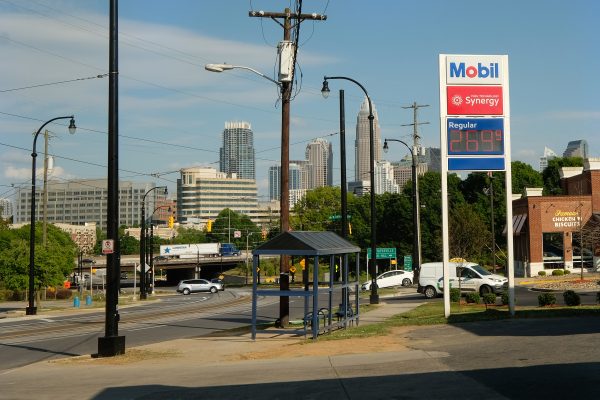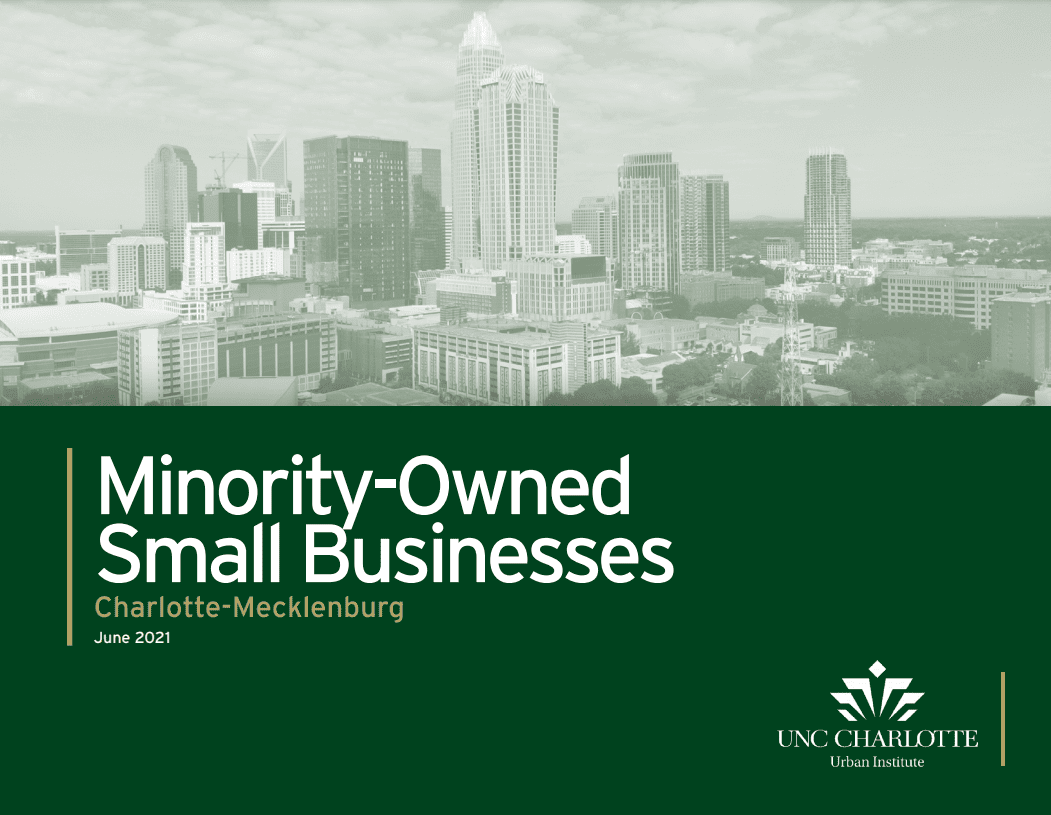Supporting Charlotte’s minority-owned small businesses

A study released this week by the UNC Charlotte Urban Institute sheds light on the unique challenges minority-owned small businesses face and how the Charlotte-Mecklenburg community can better support these enterprises, which are key to community well-being and wealth-building.
Defined as businesses with fewer than 500 employees, small businesses comprise 99.9% of all businesses. Small businesses employ 47% of the private sector workforce — 61 million people — and small businesses have accounted for 65% of net new job creation since 2000.
Although small business ownership plays a large role in our economic and financial wellbeing, stark racial differences in ownership persist. Eighteen percent of small businesses with employees and 31% of small businesses with no employees are minority-owned. Businesses and financial assets (bank accounts, mutual funds, etc.) make up only 15 and 8 percent of wealth for Latinx and Black households, respectively, while these assets make up a third of overall assets for White and Asian households.
The disproportionate distribution of these assets contributes to the racial wealth gap: White households have 10 times the wealth of Black households and 7 times the wealth of Latinx households. This gap also means that people of color have less access to personal capital to start and maintain a business.
The COVID-19 pandemic has put additional strain on minority-owned small businesses and like the Great Recession, may lead to a widening of the racial wealth gap. UNC Charlotte, in partnership with Bank of America, Duke Energy, Honeywell and Charlotte Center City Partners conducted a study to better understand the landscape of minority-owned small businesses (MOSB) and the support available to them in Charlotte-Mecklenburg, particularly focused on understanding the perspectives of business owners.

According to the U.S. Census Bureau, there are 97, 966 businesses in Charlotte-Mecklenburg. Of those, 36,742 (37%) have minority ownership, 92% of which are sole proprietorships (owned and operated by one individual).
This research study examines the specific challenges faced by these MOSBs in Charlotte-Mecklenburg and the nature of business support available within the local ecosystem. Understanding the local context will allow the community to develop a better support ecosystem and mitigate some of the challenges minority-owned small businesses face.
According to previous research, supportive ecosystems can ease or negate the effects of structural obstacles to business building for business owners of color and add $290 billion in business equity. The research team surveyed business owners as well as conducted individual and focus group interviews with business owners and representatives from organizations that provide support to them.
A sample of minority-owned small businesses and support organizations were mapped to understand where and how they operate in Charlotte-Mecklenburg. MOSBs are generally supported by the business, government, and nonprofit sectors. These sectors provide a range of services and assistance, including financial services; services that connect businesses to resources, customers, and markets; education and professional development; and training and business incubation.
Although these support systems exist, minority-owned small businesses still face unique barriers that limit their ability to start and sustain their business. These barriers include:
-
Racial inequity
-
Access to financial capital
-
Access to markets
-
Marketing and operations
-
Regulations
-
Capacity
The strategies we employ to support MOSBs will require public, private and the nonprofit sector coordination with the aim of building an ecosystem that is more equitable and culturally responsive. These strategies include:
-
Promoting organizational accountability
-
Expanding access to capital
-
Increasing access to markets
-
Providing a continuum of support
-
Building strong networks
-
Promoting geographic diversity
-
Advocacy
And prosperity for MOSBs could mean greater prosperity for the community as a whole. According to a recent McKinsey report, investments in a supportive ecosystem for minority-owned businesses could release part of the untapped $1 trillion to $1.5 trillion in annual gross domestic product that would come from closing the racial wealth gap. A strong support ecosystem for MOSBs can also remedy the mistrust between institutions and minority business owners. The inequities that exist in business ownership are fundamentally a structural problem, reflecting the cumulative impact of historic and current disparities. The interventions that are adopted need to address these challenges. Ensuring that barriers are addressed and that MOSBs can build a solid business infrastructure will be a critical task for the Charlotte-Mecklenburg community.